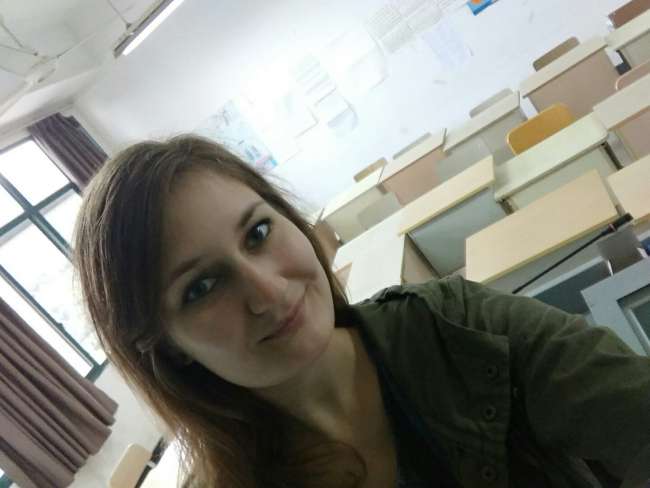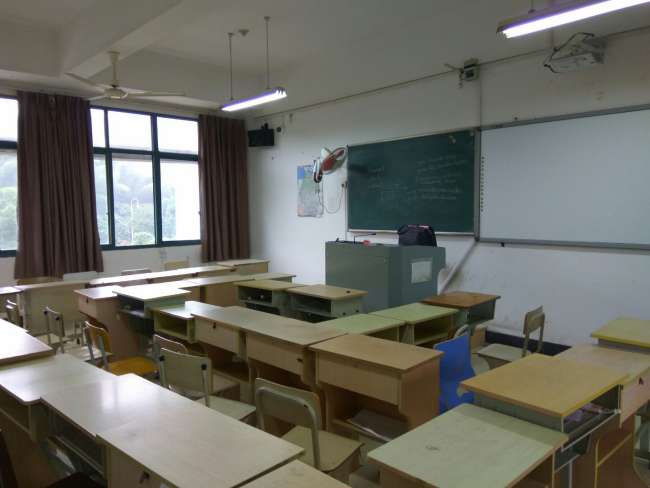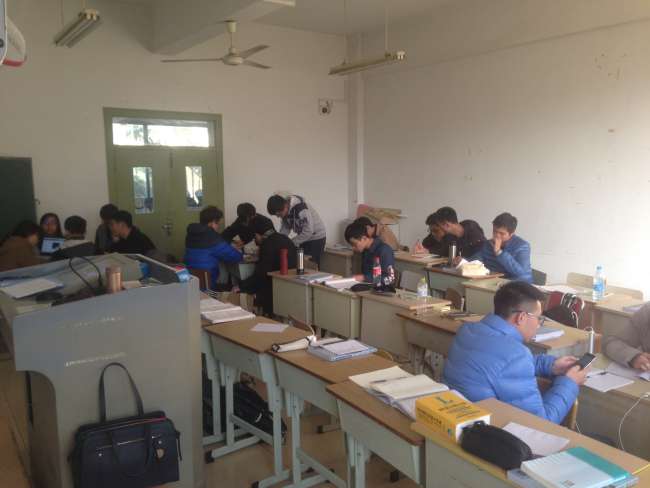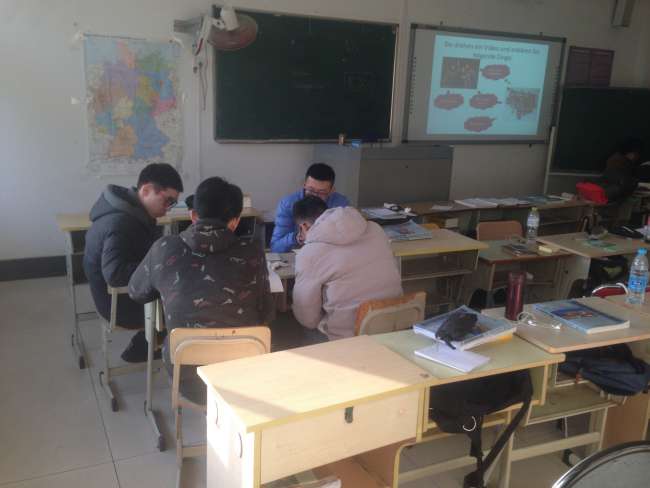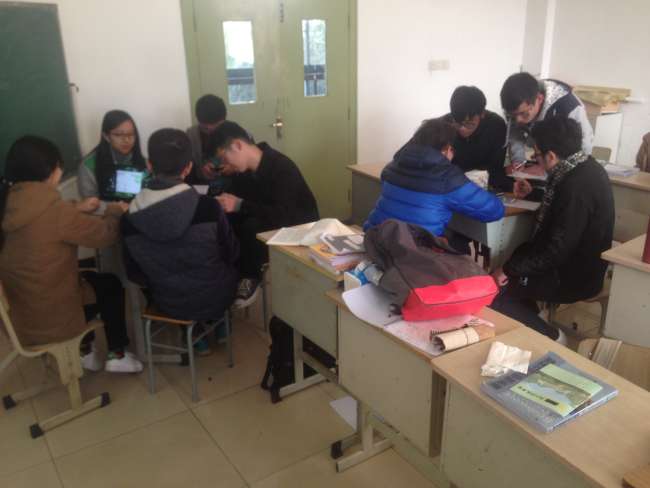STATE இல் பணிபுரிகிறார்
வெளியிடப்பட்டது: 07.03.2017
செய்திமடலுக்கு சந்தாதராகவும்
Not so exciting, but since I have been asked a few times, this time I will write a bit about my work. That also makes it easier for me. If you have any questions, I can simply refer you to the blog. J
As most people already know, I work at a university. That is the Zhejiang University of Science and Technology, or ZUST for short. Here I am employed as a lecturer for German as a foreign language for two semesters. How is that possible, since I obviously do not have a title as a professor or doctor?
During my time in Bayreuth, my main subjects were German and mathematics. A minor subject in which I voluntarily took an exam is German as a second language. German as a second language (DaZ) and German as a foreign language (DaF) are not the same in teaching, but similar. In addition to a degree in DaF, the university also requires its teachers to have two years of professional experience. I gained this through my teaching internship in Kaufbeuren.
So my qualifications are not perfect, but German teachers are in high demand in China, whether at elementary and middle schools or at the university. So I came here as a lecturer for DaF. This is also possible in Germany. Language institutes, such as the Goethe-Institut, also have exchange programs, etc. at German universities. As native speakers, we have very little to do with that.
So now I am at ZUST in Hangzhou. ZUST has an exchange program called the 2+3 program. The students participating in this program aim to obtain a double bachelor's degree. This works because they start their studies at a Chinese university and want to finish them at a German university. However, studies at German universities are conducted in German, and the German government requires a language proficiency level of B1 (comparable to our English after secondary school) in order to study in Germany. Of course, a Bachelor's thesis in German requires more than just B1. Here it is hoped that the missing language skills will develop through living in Germany.
So I am at ZUST to prepare Chinese students for studying in Germany and the associated assessment examination.
In the last semester (which lasted from September to mid-January), all my students were advanced. I had four courses with 30-40 students each. My task was to teach German, with a focus on speaking and listening. So from September to the end of December, I taught the four courses and at the end of the semester, I planned and conducted the oral exams for the students.
This semester, I have three beginner courses and five advanced courses. That means a total of over 200 students. That is definitely not too few. The advanced students have a selection interview in May. This is a kind of job interview. Professors from German universities come and decide which students are allowed to go to Germany. Many technical questions are also asked here. And I am preparing the students for this interview. A lot of responsibility, but I can't ruin my own future. ^^ I have almost no information about how the interview goes and I can't help the students with technical matters either. Their main courses range from biochemistry and mechanical engineering to art. Everything is included, especially everything that I have no idea about. It will be a learning by doing experience for both me and the students. Unfortunately, at the end, all participants can no longer benefit from what they have learned because then everything will be over.
With the beginners, there is much less room for messing up. At the end of the semester, they have an oral exam and otherwise normal classes.
Working at the university was quite challenging at the beginning. Compared to Germany, the level here is lower and so are the requirements for teachers. This actually sounds good for me now, but at the beginning I often felt left alone. There were and are no agreements or any kind of cooperation. Everyone works on their own and does their own thing. Meanwhile, I have become accustomed to this and do what I think is right. There have been no problems with this and I think the superiors and students are satisfied. But since there is little communication, this is only an assumption.
Working with Chinese students is great. They are mostly motivated and compared to what I know from Germany, very disciplined. They also forget about homework or need to be reminded of their tasks when their phone vibrates, but nevertheless, working with them is good and fun. I think it is as the German imagines Chinese students to be. Quiet, polite, ambitious, and extremely good at memorizing. On the other hand, producing their own things is extremely difficult for them. Forming groups without further instruction is almost impossible, and tasks from elementary school that require independent thinking are considered the most challenging. That's why I think the German school system is better. BUT I would like to let every elementary school student go through the Chinese school for one or two years. With loud, screaming children who do not know what discipline and order are, we would no longer have any problems. I actually quite like the idea. :D
On the whole, there are many advantages to the German school system when compared to this one. But even the US system falls far short of our own. I want to write the next report about the US. As most people know, I spent my semester break there. So far, so good. In addition to what I have written, there are a few pictures of the classrooms and the students working.
செய்திமடலுக்கு சந்தாதராகவும்
பதில்


